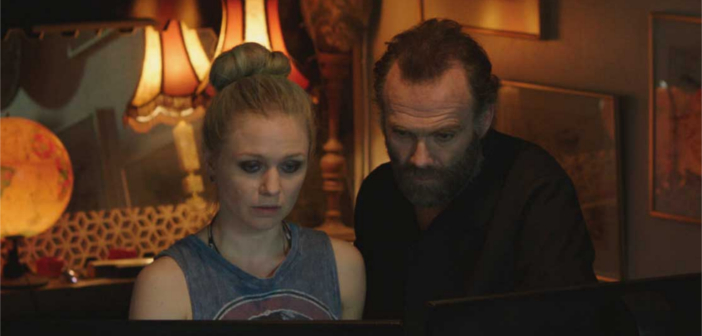TV Review | The Case for Channel 4’s New Icelandic Drama
One of my favourite tropes of the golden age of television is that of the murder mystery in a small town. Although so many shows of recent memory rely upon such a plot-line – Twin Peaks, The Killing, The Fall, True Detective, Fortitude – writers keep returning to this type of storytelling because it can be so rich. As detectives conduct their investigations, the audience uncover disturbing information about the area’s inhabitants – locals who may not even be involved in the murder. Suddenly, a society which seemed so tranquil and secure reveals its darker rotten inner layer.
Channel 4’s addictive Icelandic drama Case (which premiered on Channel 4 and can be watched in its entirety on All 4) does not stray too far from this winning formula. When adopted teenage girl, Lara, is found hanging in the ballet studio she attended, many are quick to rule it as a suicide. However, three are not so sure. Detective Gabriella (Steinunn Ólína Þorsteinsdóttir) believes there is more to the case – citing the fact the underage girl had sex hours before dying and had been calling a mysterious number. Meanwhile, Lara’s biological parents and her foster family both employ people to uncover the secret to their daughter’s death. The former hire drunken shady small time lawyer, Logi (Magnús Jónsson) while the latter team with their social worker, Brynhildur (Jóhanna Vigdís Arnardóttir).

Case isn’t the most inventive twist on the murder mystery. That said, it does move within the confines of the genre with great panache. It’s very elegant in terms of its plotting. Characters don’t simply crash into each other’s narratives to kick-start drama. Instead, from the three episodes I’ve seen, Case subtly draws its central players together – a nervous ballet teacher, an incredibly unsettling drug dealer, suspicious teens – with a remarkable lack of expository dialogue. For instance, in the pilot Gabriella interrogates an older teenage youth worker. Not through words, but by the suspect’s slight stammering and nervous manner, its hinted that he is lying. The episode then ends with a silent ominous image of him burning evidence related to the suicide. Without any clunky scriptwriting, the viewer knows now to watch out for the character.
Also strong is the verisimilitude of the show. Despite the potential grand guignol theatrics of the central death – which recalls movies like Suspiria and Black Swan – there is an authenticity to the drama that is lacking in a lot of American and some British television. None of the characters feel like caricatures, particularly Gabriella and Logi. Both in lesser hands could be larger than life figures – a tough female cop, a Saul Goodman-esque lawyer. However, both look and act appropriately downbeat as if their jobs have taken a toll on them – something which is probably true for many who work in their fields in real-life. Adding to this sense of realism is the look of the show. Series director Baldvin Z (who also worked on the acclaimed Icelandic thriller Trapped) eschews showy stylistics in favour of very intimate shots of his characters, putting the viewer even closer to the drama unfolding.
This sense of realism can be disturbing. There is a casualness to the mistreatment of women (many of whom are fourteen and fifteen years old), both physically and verbally, which leaves the show feeling uncomfortable to sit through at times. However, like much of Nordic Noir – e.g. The Girl with the Dragon Tattoo – Case, I’d argue, is highlighting Scandinavia’s extremely high rates of violence against women rather than revelling in it. If one can withstand witnessing such horrendous acts and enjoys thrillers of a similar vein, this Icelandic gem might be your next binge.

